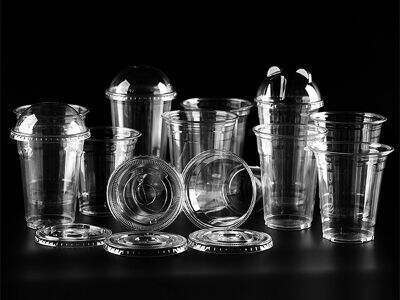What is plastic cups at home or school or parties. They can also be very convenient given that they are lightweight and easy to clean up. However, it must be noted that not all plastic cups are equal. Some cups run the risk of harming your health, and others are harmless and even good for the planet. In this guide, you locked down learn how to select safe plastic cups you can use every day without fear.
Plastic Safety Ratings And Symbols Explained
Have you ever examined the bottom of your plastic cups? I mean if you do, you probably did see a few numbers there. These numbers tell you what type of plastic the cup is made from and how safe it is to use. The numbers go from 1 to 7, with 1 the safest type of plastic and 7 the least safe.
Here’s What Each of Those numbers Means:
Number 1: This cup is made of a type of plastic – PET (polyethylene terahthalate) – safe. You can feel good about using these Cup.
No. 2: This is an HDPE (high-density polyethylene) plastic cup with lid, so safe. It’s also a good place for drinks.
Number 3: This cup is made out of PVC (polyvinyl chloride) and not safe. It releases harmful toxins that are bad for your health, so it is best to stay away from these cups.
4. This is a safe LDPE (low-density polyethylene) cup. You also can use it with no worries.
5. This cup is safe too — it is made of PP (polypropylene). Nice for drinks and snacks.
Number 6–PS (polystyrene), unsafe. It can also leach chemicals, so these cups are best avoided.
Number 7: This cup is constructed with other types of plastic that are unspecified, generally unsafe. They can emit toxic chemicals as well.
Along with numbers, you may see some symbols on the cups that tell you whether they can go in the microwave or dishwasher. Micro just looks like a box with waving lines inside and dish just looks like a box with plates inside and water droplets. If using the cups in these appliances is safe, these symbols are essential to know.
Plastic cup alternatives that are eco-friendly
If you are trying to find a better for the environment way to eliminate the use of plastic cup, there are plenty of great options to choose from. Here are a few eco-friendly options:
Compostable Cups: These cups are made from bamboo or cornstarch. These are special because they are biodegradable and don't hurt the environment. Using these cups is a great way to reduce waste.
Glass Cups: Glass cups are another great option. They are reusable, used many times over and most of them are free of harmful chemicals. Because these glass cups can easily break when dropped, you should be careful when using them.
Stainless Steel Cups — These cups are extremely durable and long lasting. They are also recyclable when you no longer need them, so they can be an eco-friendly option. They are also safe to use and do not leach harmful chemicals.
Chemicals to Avoid in Your Drinkware
If you are shopping for plastic cups, you need to make sure that you purchase only the ones that do not contain toxic chemicals. Examples include bisphenol A (BPA) and phthalates. These chemicals can leach into your drinks and can be harmful to your health over time.
To protect you from bad chemicals, select plastic cups that state this on the package: BPA free and phthalate free. That means they are free from these toxic substances. You can also choose cups made of safer materials, such as PET and LDPE, considered safe.
Plastic cups — microwave and dishwasher safe
When using plastic cups in the microwave or dishwasher, it is crucial to choose cups that are labeled as safe for those purposes. If you choose cups that have not got safety marks, this will lead to them getting damaged more easily and can also release bad chemicals into your food or drinks.
If you're putting plastic cups in the microwave, also donanate that long. They can degrade under prolonged exposure to heat and potentially release any number of harmful chemicals. Make sure to read the instructions to make sure you’re using them safely.








